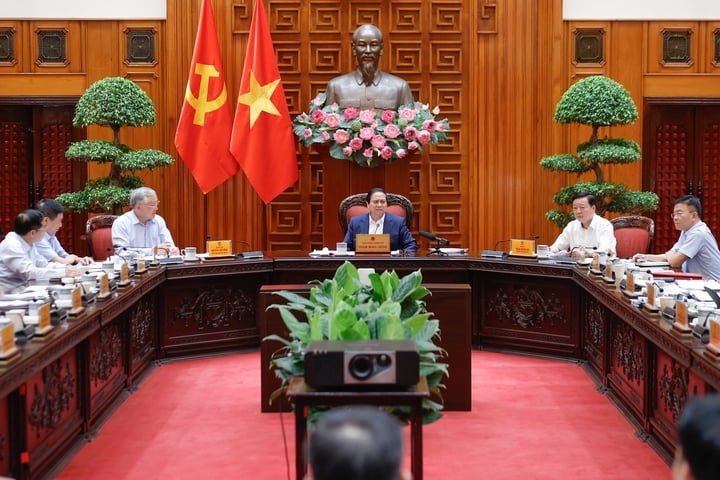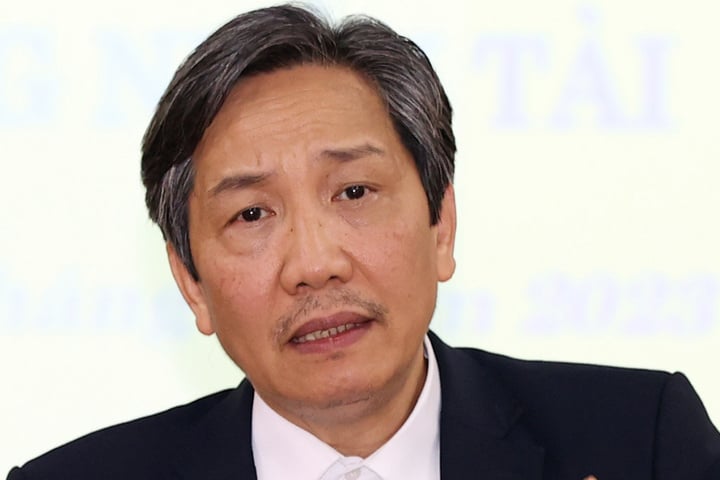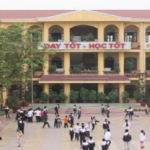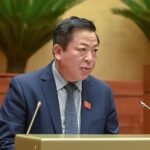In the spirit of “local decision-making, local action, and local accountability,” the government plans to delegate 1,248 tasks and authorities to local governments at the provincial and district levels. Of these, 1,060 tasks will be assigned to the communal level.
Speaking to VTC News, Dr. Nguyen Tien Dinh, former Deputy Minister of Home Affairs, said that all three Comprehensive Public Administration Reform Programs (2001, 2011-2020, and 2021-2030) emphasized the issue of decentralization and devolution.
“This time, with the ongoing revolution in streamlining the apparatus and downsizing the workforce, the issue of decentralization and devolution is even more prominent. This is evident in the National Assembly’s ongoing discussions to amend the Law on Local Government Organization to fit the two-tier local government model, while further enhancing decentralization and devolution to improve effectiveness and efficiency,” said Dr. Dinh.

Prime Minister Pham Minh Chinh chairs a meeting of the Government’s Standing Committee on the implementation status of decentralization and devolution in tandem with the realization of the two-tier local government model. (Photo: VGP)
Dr. Dinh shared that the transition from a three-tier to a two-tier local government model would entail delegating tasks and authorities currently held by district-level governments to the communal level. Simultaneously, the central government would further decentralize powers to the provincial level.
Additionally, government ministries are formulating 28 decrees on decentralization and devolution, delineating 1,248 tasks and authorities to be delegated between the central and local governments.
“The essence here is devolution—empowering local governments to act. Decentralization, on the other hand, refers to the central government delegating tasks to local governments for a specified period. This time, we will focus more on devolution. We will clearly define the central government’s role in policymaking, planning, inspection, and supervision, while local governments will be responsible for implementation. The local governments will decide and act, and they will be held accountable,” emphasized the former Deputy Minister of Home Affairs.
Dr. Dinh analyzed that the provincial level of local government would focus on concretizing central policies and laws and formulating specific policies for their localities. Accordingly, the provincial level has 10 basic groups of tasks and authorities.
As an example, he mentioned that the provincial level would be responsible for organizing the implementation of the Constitution, laws, and policies in their locality, ensuring uniformity in executing central policies and laws. They would also decide on long-term, medium-term, and annual socio-economic development strategies and plans and sectoral planning in their jurisdiction, in accordance with the law. Additionally, they would handle matters involving two or more communal-level administrative units.
The provincial level would also base itself on the Party’s orientations to decide on the application of specific policies and pilot special and unprecedented policies to boost socio-economic development in their locality after reporting to and obtaining permission from authorized agencies. Furthermore, they would decide on personnel matters within their jurisdiction and in accordance with the competent agency’s cadre management regulations.
“Deciding on the cadre staffing of civil servants in the local government apparatus at all levels according to the cadre staffing quota assigned by the competent authority; deciding on policies to attract and encourage talented personnel, civil servants, public employees, and laborers to work in the locality… are also among the tasks and powers of the provincial level,” said Dr. Nguyen Tien Dinh.

Dr. Nguyen Tien Dinh
Meanwhile, according to Dr. Dinh, the communal level will handle all tasks and be responsible for resolving local people’s issues, covering seven groups of tasks and authorities.
Firstly, they will organize the implementation of the Constitution, laws, and documents of higher-level agencies in their locality.
Secondly, they will decide on finance and budget matters within their jurisdiction at the communal level (except for matters under the authority of the provincial level); issue legal documents; and receive financial and budgetary support from the central and provincial levels to ensure the provision of public utilities.
Thirdly, they will carry out tasks for socio-economic development, agricultural development, community development, support for small businesses, and the promotion of tourism and services.
Fourthly, they will manage assets and infrastructure serving the local people; manage preschool education institutions, primary schools, secondary schools, health stations, elderly care centers, child protection centers, and social welfare institutions; maintain local traditions, and manage cultural, sports, and entertainment facilities.
Fifthly, they will provide essential public services to the local people, such as water supply, wastewater and waste treatment, environmental sanitation, and fire prevention and fighting.
Sixthly, they will handle administrative procedures and provide direct public services to the local people.
Lastly, they will perform functions, tasks, and powers delegated or authorized by the provincial-level local government.
“The delegation of tasks and powers to the communal level is substantial, and many decisions can be made independently, such as program and project approval, recruitment, and management of healthcare and education,” said Dr. Dinh.
Dr. Nguyen Tien Dinh believes that establishing a two-tier local government model significantly contributes to enhancing the effectiveness, efficiency, and governance of the state administration and simplifying administrative procedures.
This modern local government model brings numerous benefits to the people and businesses. Notably, it simplifies administrative procedures, promotes economic development, and improves state management effectiveness.
“We are moving towards building a communal-level government—the level closest to the people—shifting from a ‘governing government’ to a ‘serving government,’ with the people at the center. We aim to proactively grasp and resolve issues related to individuals and organizations at the grassroots level. Therefore, the closer the government is to the people, the more benefits the people will enjoy,” emphasized the former Deputy Minister of Home Affairs.
Selecting the Best Candidates for the Job
Dr. Tran Anh Tuan, President of the Vietnam Association of Public Administration, former Deputy Minister of Home Affairs, pointed out one of the critical aspects of ensuring the smooth functioning of the two-tier local government model: determining the positions, staffing, and qualifications of the new government apparatus and evaluating and classifying the current cadre of civil servants for appropriate placement in the new structure.
“The role, functions, tasks, powers, organizational structure, and operating mechanisms of the new commune-level governments will differ significantly from the current ones. Consequently, it is necessary to assess, arrange, and assign the current cadre of civil servants accordingly, along with making adjustments and providing additional support,” said Dr. Tuan.
The former Deputy Minister of Home Affairs explained that evaluating, classifying, transferring, and assigning personnel is a standard aspect of civil servant management, carried out based on the workload and requirements of agencies and organizations, including the grassroots-level governments.
Therefore, transferring, assigning, and providing additional support to civil servants from the former district and provincial levels to the new commune-level governments is not only necessary but also mandatory to enhance the capacity of the civil servant team and ensure the effective execution of the new tasks and powers at the communal level.

Dr. Tran Anh Tuan
Addressing concerns about the potential gap in experience between district-level and commune-level civil servants, with the former having less direct experience in handling grassroots-level issues and understanding the people’s needs, Dr. Tran Anh Tuan emphasized that most district-level civil servants have grown through the commune level, and any comparison would be inappropriate.
The expert acknowledged the value of experience, derived from practical knowledge, in avoiding risks, mistakes, and failures. However, he also noted that experience is not the sole determining factor for success.
“I strongly agree with General Secretary To Lam’s statement at the closing of the 11th Party Central Committee meeting: ‘The highest standard is the requirement of the job, followed by other criteria.’ Therefore, if I were to select civil servants for the grassroots level, I would choose those with the ability to fulfill the job requirements effectively,” said Dr. Tran Anh Tuan.
National Assembly Deputy Nguyen Thi Hong Hanh (Ho Chi Minh City delegation) concurred with the orientation of assigning most of the current district-level civil servants to the commune level, along with some provincial-level civil servants.
“Thus, the commune level can fully undertake tasks previously handled at the district level and take on additional tasks through further decentralization from higher levels. With an expanded administrative scope, many administrative procedures currently performed at the provincial level can be delegated to the commune level,” said Ms. Hanh.
National Assembly Deputy Truong Xuan Cu (Hanoi delegation) highlighted the crucial role of the communal level in the two-tier model, as it would directly address the daily concerns of the people. Therefore, it is imperative to restructure the organizational apparatus of the communal level scientifically and efficiently.
“It is also necessary to enhance the capacity and quality of the communal-level civil servant team to meet the new requirements. When the communes become larger, the civil servants must be more competent. With the merging of communes, there will be a larger pool of civil servants to select from, many of whom already hold university degrees or higher,” said Mr. Cu.
He also suggested screening and selecting civil servants who meet the standards and are suitable and capable of adapting to the new requirements. Simultaneously, mechanisms and policies for training and development should be put in place to ensure they meet the required standards.
“Rethinking Provincial Mergers and County-Level Governance: Optimizing Educational and Healthcare Institutions”
The restructuring of local public service units is guided by a set of principles aimed at enhancing efficiency and effectiveness. These principles are designed to streamline operations, improve service delivery, and ensure optimal utilization of resources. The underlying objective is to create a more agile and responsive public service system that can cater to the diverse needs of its constituents.
“Investigating the Selection Process: Task Force Examines Contractors for the Ho Chi Minh City – Thu Dau Mot – Chon Thanh Expressway (Binh Phuoc Province Section)”
The Government Office has issued Document No. 4755/VPCP-CN, conveying the directions of Deputy Prime Minister Tran Hong Ha regarding the selection of a construction contractor for the highway construction package under the Ho Chi Minh City – Thu Dau Mot – Chon Thanh Expressway Project (Binh Phuoc province section).
Streamlining the Construction Sector: The Prime Minister’s Directive to Slash Red Tape
“In a recent development, Prime Minister Pham Minh Chinh has taken a significant step towards streamlining bureaucratic procedures in the construction sector. On May 29, 2025, he signed Official Dispatch No. 78/CD-TTg, signaling a strong commitment to reducing red tape and simplifying administrative procedures related to construction processes.”
The Great Financial Power Shift: Decentralizing 75 Ministerial Powers to Local Governments
“Speaking on the matter of decentralization and delegation of power, Minister of Finance Nguyen Van Thang asserted, “Authority should be bestowed upon those who demonstrate the utmost competence and efficiency. It is imperative to devise a flexible mechanism, granting local governments the autonomy to select organizational models that align with their unique contexts, thereby eschewing a one-size-fits-all approach.”





















